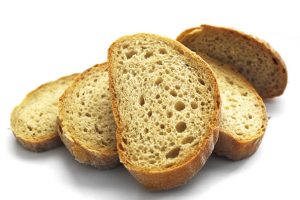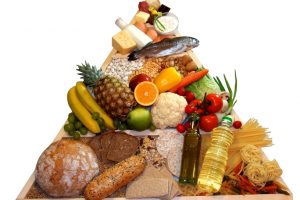Gluten free diets are becoming increasingly popular in the diet world. More and more gluten free products are available in supermarkets and restaurants are serving up a wider range of gluten free dishes.
However, many people are following the diet for the wrong reasons and it needs to be stressed that the gluten free diet is not primarily a weight loss diet, but in fact a necessary diet for people with the clinical condition, Celiac Disease. It is also important to note that a gluten free diet is not the same as a low carb diet.
This is not to say that people who follow a gluten free diet will not lose weight, but the diet is not designed for this purpose, so there are no guarantees. Furthermore, people following this diet need to be aware that by following a gluten free diet, they are eliminating a large number of nutritious foods from their diet and are therefore at risk of nutrient deficiencies unless appropriate substitutions are made. See also: What is a well balanced meal
What is Gluten?
Gluten is a protein found in wheat, barley and rye grains. It is therefore present in foods such as bread, pasta, cakes, biscuits and anything made with flour. Gluten is also present in many processed foods due to thickeners, flavours and coatings such as bread crumbs, which contain derivatives of these grains.
Who should follow a gluten free diet?
A gluten free diet is suggested for patience of Celiac disease. This disease affects more than two million Americans (possibly more) as it is often left undiagnosed.
When people with this condition eat gluten, their immune system attacks the protein and causes damage to the tiny, protrusions called villi in the small intestine, which are responsible for the absorption of nutrients into the blood stream. This damage means that nutrients are not absorbed well into the body and the person can miss out of vital vitamins and minerals necessary for the body to function.
In addition to these nutrient deficiencies, more obvious symptoms may include weight loss, anaemia, upset stomachs, bloating and fatigue. If the damage continues over the long term, irreversible damage may be done to the intestine, and there is a higher risk of intestinal cancers.
It is therefore vitally important that a strict gluten free diet is followed at all times.
What does a gluten free diet involve?
Many people who take up a gluten free diet for weight loss or reasons other than Celiac disease do not realise the effort and risks of following the diet. A strict gluten free diet not only eliminates bread, pasta, cakes, biscuits, crackers and any flour containing products but also means that a huge amount of frozen foods, takeaways, processed foods and condiments cannot be eaten.
Even if the main ingredient is not wheat, barely or rye, many foods contain products derived from these grains and must be avoided.
There is also a risk of contamination. If you are following a true gluten free diet, you should have a separate toaster, chopping board and knife for gluten free bread. Foods with gluten should not be prepared in the same area or pans as gluten free foods as even the smallest amount of contamination can do damage to the intestine.
At restaurants, people with celiac disease need to not only request gluten free meals, but also make sure the chef is aware of the possibility of contamination and prepares the foods separately. If you do not have celiac disease, you may not follow the diet as strictly as this, but if you do not, your diet is unlikely to be completely gluten free.
A gluten free diet also represents a large increase in food costs to followers. Gluten free products such as bread and pasta are usually significantly more expensive than normal versions and although they are becoming more readily available, it can still be difficult to locate products in smaller shops and supermarkets.
Another issue is taste, although this is also improving, gluten free products derived from other types of grains and proteins often have a different, and in many cases undesirable, taste and texture.
People on a gluten free diet must also be conscience of the foods and therefore nutrients that they are eliminating from their diets. Cutting out breads and pasta from your diet can lead to a lack of the B group vitamins these foods contain.
This can cause low energy and fatigue if these vitamins are not obtained from another food source. Fibre intake may also be low, as eliminating whole grain products from the diet and replacing them with gluten free products often made from refined corn or rice flour can decrease dietary fibre intake.
It is important to replace the eliminated foods with alternatives that provide these nutrients such as alternative grains like quinoa and wild rice.
Is a Gluten free diet beneficial for weight loss?
There is little scientific evidence that a gluten free diet is beneficial for weight loss. Although there are many people who report successful weight loss and energy with a gluten free diet, this may in fact due to the fact their overall food intake has decreased.
Foods containing gluten such as pasta, bread, cakes and pastries are the types of foods that are often over eaten, so by eliminating these from the diet, most people will be eating less calories. Unfortunately, if they are not substituting these foods with gluten free alternatives they are also placing themselves at risk of nutrient deficiencies and fatigue due to low carbohydrate intake.
If following a strict diet, it is also probable that dieters are avoiding many other weight inducing foods such as processed foods and takeaways, high fat condiments and sauces in case they also contain gluten. This may also be a contributing factor for those who have experienced weight loss on this diet and may in fact be a good practice to adopt. These foods usually contain little nutritional benefit and thus can safely be eliminated from the diet. See also quick and healthy weight loss tips
On the other hand, it is also important to remember that realistically a gluten free diet can easily contain just as many calories as a diet containing gluten. Gluten free foods are often just as high in fat and calories, if not more so than their gluten containing counterparts. A gluten free diet does not aim to reduce calories and fat, and so is not designed to cause weight loss.
It is not recommended to follow a gluten free diet for weight loss purposes as there is no scientific evidence to support this as a viable technique. If you suspect you are suffering from Celiac disease, it is important to get an official diagnosis from a doctor, and see a dietician for advice on how best to follow a gluten free diet.





